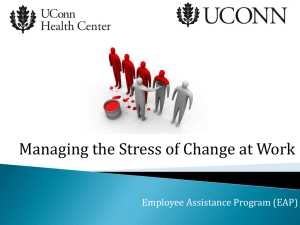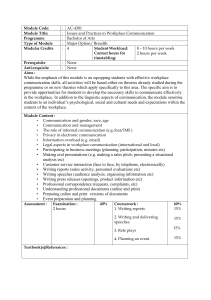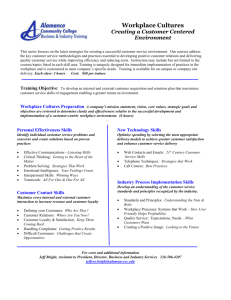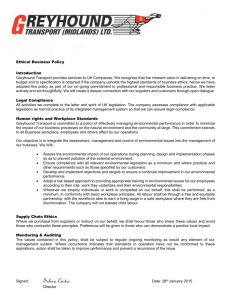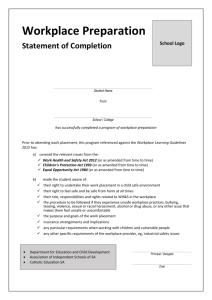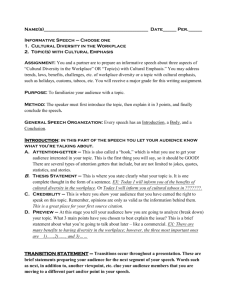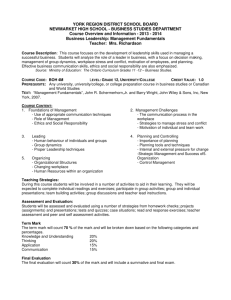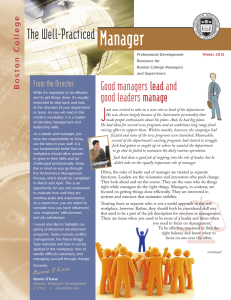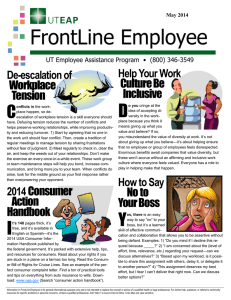keeping your emotional health in today's stressful world
advertisement
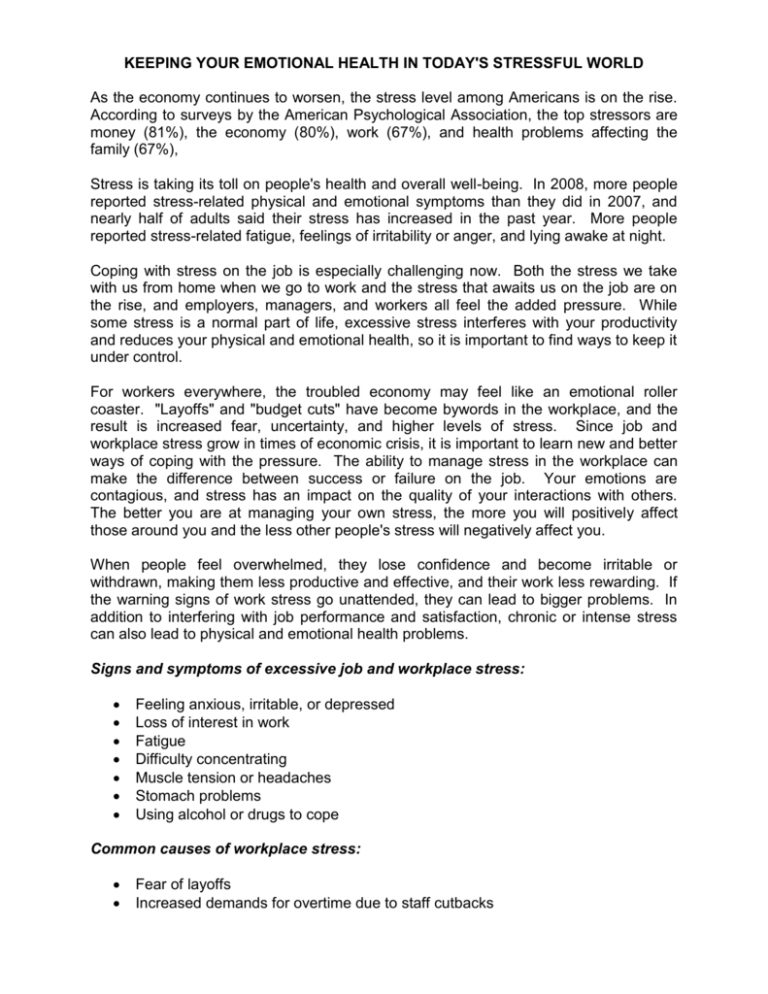
KEEPING YOUR EMOTIONAL HEALTH IN TODAY'S STRESSFUL WORLD As the economy continues to worsen, the stress level among Americans is on the rise. According to surveys by the American Psychological Association, the top stressors are money (81%), the economy (80%), work (67%), and health problems affecting the family (67%), Stress is taking its toll on people's health and overall well-being. In 2008, more people reported stress-related physical and emotional symptoms than they did in 2007, and nearly half of adults said their stress has increased in the past year. More people reported stress-related fatigue, feelings of irritability or anger, and lying awake at night. Coping with stress on the job is especially challenging now. Both the stress we take with us from home when we go to work and the stress that awaits us on the job are on the rise, and employers, managers, and workers all feel the added pressure. While some stress is a normal part of life, excessive stress interferes with your productivity and reduces your physical and emotional health, so it is important to find ways to keep it under control. For workers everywhere, the troubled economy may feel like an emotional roller coaster. "Layoffs" and "budget cuts" have become bywords in the workplace, and the result is increased fear, uncertainty, and higher levels of stress. Since job and workplace stress grow in times of economic crisis, it is important to learn new and better ways of coping with the pressure. The ability to manage stress in the workplace can make the difference between success or failure on the job. Your emotions are contagious, and stress has an impact on the quality of your interactions with others. The better you are at managing your own stress, the more you will positively affect those around you and the less other people's stress will negatively affect you. When people feel overwhelmed, they lose confidence and become irritable or withdrawn, making them less productive and effective, and their work less rewarding. If the warning signs of work stress go unattended, they can lead to bigger problems. In addition to interfering with job performance and satisfaction, chronic or intense stress can also lead to physical and emotional health problems. Signs and symptoms of excessive job and workplace stress: Feeling anxious, irritable, or depressed Loss of interest in work Fatigue Difficulty concentrating Muscle tension or headaches Stomach problems Using alcohol or drugs to cope Common causes of workplace stress: Fear of layoffs Increased demands for overtime due to staff cutbacks Pressure to perform to meet rising expectations but with no increase in job satisfaction Pressure to work at optimum levels - all the time! When stress on the job is interfering with your ability to work, care for yourself, or manage your personal life, it is time to take action. Taking care of yourself doesn't require a total lifestyle change. Even small things can lift your mood, increase your energy, and make you feel like you are back in the "driver's seat." Here are some tips to help you: Get moving. Exercise really does help to lift your mood, increase your energy, sharpen your focus, and relax your mind and body. Make food choices that keep you going and make you feel good. Get enough sleep. Don't over-commit yourself. Try to leave for work earlier in the morning. Even 10 to 15 minutes can make the difference between frantically rushing to your desk and having time to ease into your day. Plan regular breaks. Prioritize tasks. Break projects into small steps. Delegate responsibility. Try to think positively about your work, avoid negative-thinking co-workers, and pat yourself on the back about small accomplishments, even if no one else does. For more information, check out "Stress at Work: How to Reduce and Manage Workplace and Job Stress," at http://www.helpguide.org, or call the Mental Health and Recovery Services Board at 330-424-0195.
